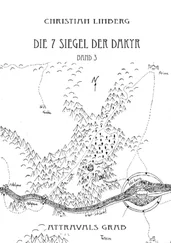“Babies get fevers, honey.”
Joanna sat up. She took Paul’s hands in hers—her palms felt cold and clammy.
“Look. Joelle had a beauty mark on her left leg. Right here.” She reached over and touched his leg, just below the knee. It nearly made him jump. “I saw it. I felt it. When you fell asleep the first night, I went to her crib and just . . . well, looked at her. I couldn’t believe we had her. I woke up and thought I was dreaming maybe. I had to see her again. To know she was real. You understand?”
Paul nodded.
“Okay. When the doctor examined her today, I didn’t see it. I told myself maybe you’re wrong, maybe you didn’t really see a beauty mark before. It was dark in the room. Maybe it was a speck of dirt, a smudge. Only . . . all day today I was thinking that she smelled different than she did before.”
“Honey . . .”
“Listen to me. Please.” She squeezed his hands, as if she were trying to physically press her belief into him, as if it were something that could be caught, like a disease. Only he didn’t want her disease. He wanted her to stop this, to go back to being the ecstatic new mother who woke up in the middle of the night just so she could gaze at her daughter. “Joelle had this . . . I don’t know, musky smell. She had it when we picked her up at the orphanage, and she had it here. She stopped having it when Galina brought her back.”
“Okay. Why didn’t you say anything then?”
“Because I knew you’d think I was crazy. Just like you’re thinking now. I told myself I was crazy. But I didn’t see the beauty mark today. So maybe I’m not.”
“Why would she switch babies, Joanna? Why? For what earthly reason?” Paul was trying to make her see how silly this all was. Belief was immune to logic; it operated by its own laws. And this scared him, if only because there was a tiny part of him that was, well . . . starting to listen to her. The fact was, Joelle had smelled a little musky. Now that Joanna had mentioned it, okay, yes, she had.
“I don’t know why she’d switch babies, Paul. Maybe because of our fight.”
“What fight? You mean about putting her to sleep?”
Joanna nodded.
“That’s ridiculous.”
“Okay, it’s ridiculous. I’m ridiculous. I just think that two days from now we’re going to be leaving this country with the wrong baby. Then it’ll be too late.”
“What do you want me to do, Joanna? Even if I believed you. What would I tell the police? What? That I know we apologized to them for insisting our daughter had been kidnapped, but guess what, now we think she was switched ?”
“We can go back to Santa Regina,” Joanna said. “We can have them check her out for us.”
“And what do you think María would say about that? How stable would she think we are? How much would she want us to have one of her babies? Nothing’s final yet, Joanna. They can still take Joelle back.”
“This baby’s not Joelle.”
“I happen to disagree with you. Okay? I happen to think she is. Because the alternative makes no sense. None. Listen to yourself. You’re basing this on a smell, for chrissakes. On something you think you saw in the middle of the night.”
“Let me ask you something, okay?” Joanna said.
No, he wanted to say—it’s not okay.
“Let’s say there’s a one percent chance I’m right.”
“What?”
“That’s fair, isn’t it? One percent?”
“Look, I—”
“I’m asking you a simple question. You want to attack me with logic, fine, I understand. So I’m asking you a logical question. You love percentages, don’t you? You’re an actuary—pretend it’s one of your insurance charts. Is there a one percent chance I’m right?”
“You want me to put a percentage on something I think is totally ridiculous?”
“Yes, I want you to put a percentage on something you think is totally ridiculous.”
“Okay, fine—there’s a one percent chance she’s not Joelle. And a ninety-nine percent chance she is.”
“Okay. Are you willing to leave the country with even the chance she’s not ours?”
For a moment he was going to say Joelle wasn’t theirs anyway—because in the usual God-given sense, she wasn’t. But he couldn’t say it. It wasn’t true anymore. From the second he’d clasped her to his chest, she’d become theirs.
She was their daughter.
So now what?
TEN
It seemed an eternity before Galina opened her door.
Maybe because Paul was no clearer about what he was going to say to her than he was before, and so was standing there frantically trying to come up with something. In addition to hoping she wouldn’t be home, that no one would actually answer Pablo’s knock.
Pablo had driven the three of them to Galina’s house in the Chapinero district, a working-class area of dun-colored apartment buildings and modest homes. When they’d slid into the backseat, Joanna hadn’t taken their daughter from Paul’s arms as she normally had in the two days they’d been with her.
She was making a statement.
This isn’t my daughter. You hold her.
Well, Paul thought, they’d see.
“Hello, Galina,” Paul said when the door finally opened.
She seemed surprised to see them, but not in a way Paul construed as alarmed. In fact, she smiled, then leaned over and whispered a sweet hello to her very favorite baby. Paul felt like turning to Joanna and saying see, satisfied now? Joanna didn’t look any different than she had during the ride over, which was nervous and unhappy.
Galina invited them in.
The door opened onto a small living room. It had a brown leather couch and two worn but comfortable-looking chairs facing a television. A lumbering yellow dog barely shifted from its sprawled position on the floor. Galina had been watching a soap opera; at least Paul assumed that’s what it was. A perfect-looking young woman was kissing a perfect-looking young man.
“Please sit,” Galina said, gesturing to the couch. Do you see this, Paul kept up his running, albeit silent commentary to Joanna, she’s inviting us in. She’s asking us to sit on her couch.
Galina brought out cookies and four cups of industrial-strength Colombian coffee in what must have been her fine china. She turned down the TV.
They made small talk.
“How did the baby sleep last night?” Galina asked.
“Fine,” Paul answered. “She woke up once around two, I think, and then went right back.”
“You’re lucky. She’s a good sleeper.”
“Yes,” Paul said. Joanna remained conspicuously silent.
“You have a lovely house, Galina,” Paul said, continuing to search for anything to talk about except the actual reason for their visit.
“Thank you.”
“What’s your dog’s name?” he asked.
“Oca,” Galina said. At the sound of his name the dog lifted his head and sniffed the air.
“Did Pablo take you to the doctor yesterday?” Galina asked.
“Yes.”
“And what did he say?”
“Everything’s fine.”
“Wonderful,” Galina said. She smiled; her laugh lines fairly cackled.
Then Joanna spoke.
“Her fever was gone.”
“That’s good,” Galina said.
“I wonder what it was ?” Joanna added.
“Who knows?” Galina lifted her hands up in the universal gesture of the human limitation to understanding the mysteries of the universe.
Which is what Joanna was trying to do, of course. Understand, at least, one mystery.
Paul knew that he was expected to take over.
If he sat back and said nothing, Joanna would accuse him of nonsupport, of aiding and abetting the enemy. Except the enemy was treating them to coffee and cookies and the general hospitality of her home. The enemy had run to a farmacia to buy Joelle a thermometer when she was sick. Still, he was counted on to do certain things. Support her, for example. Something he hadn’t done when she’d insisted Joelle, the real Joelle in her mind, had been put to sleep the wrong way. Something he was firmly and unquestioningly expected to do now.
Читать дальше












